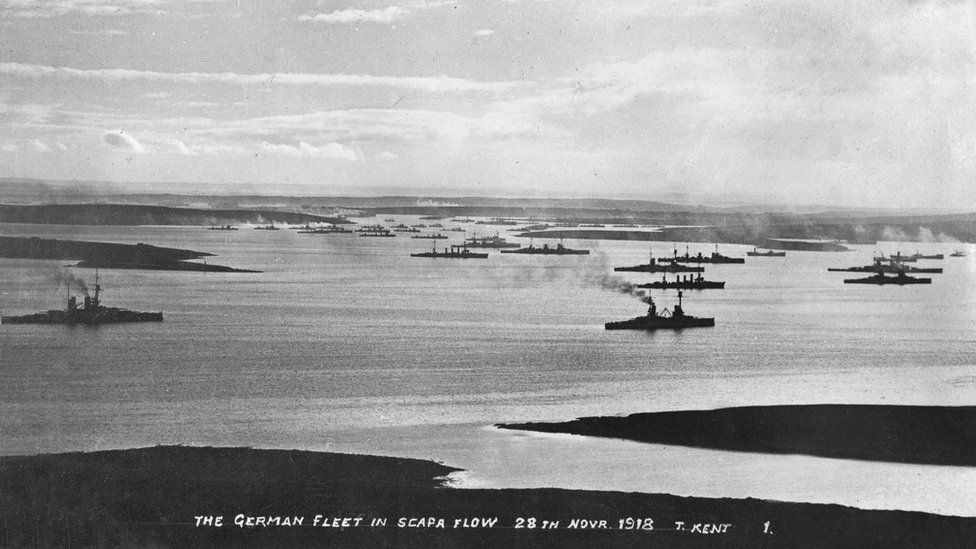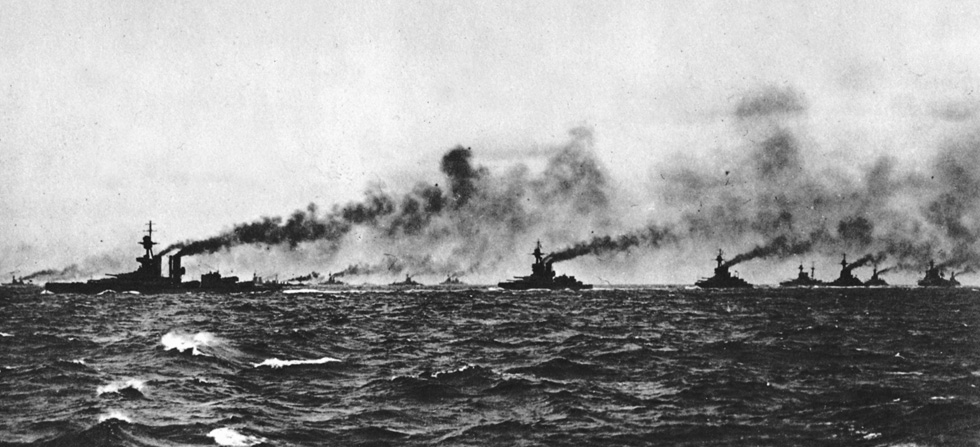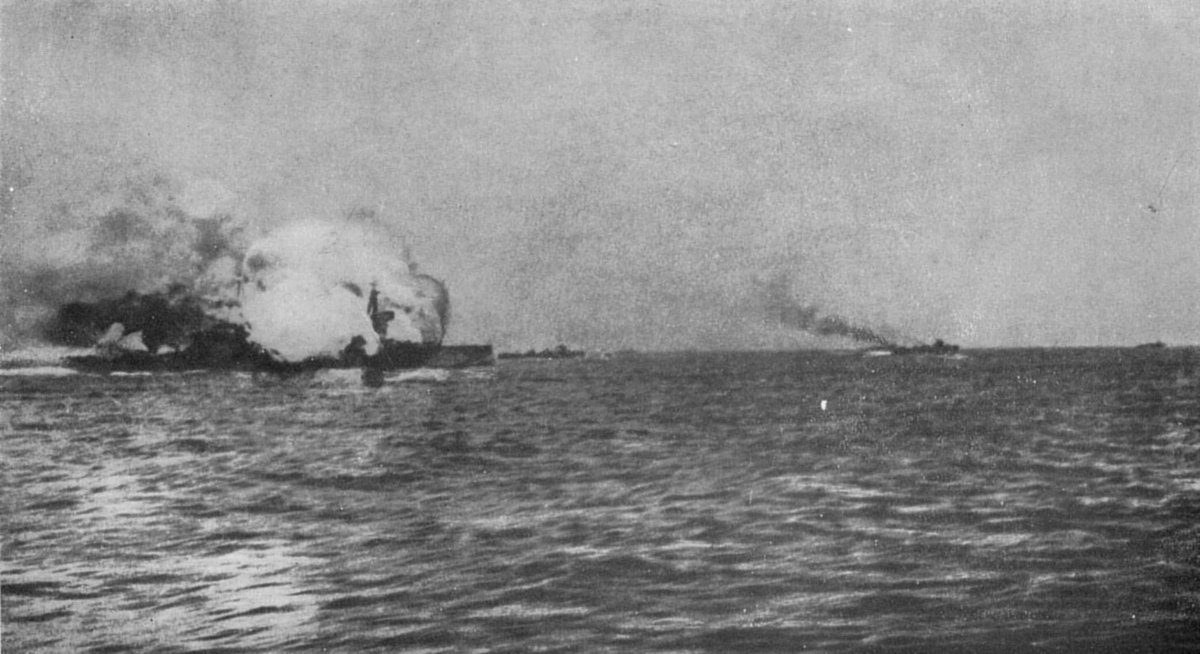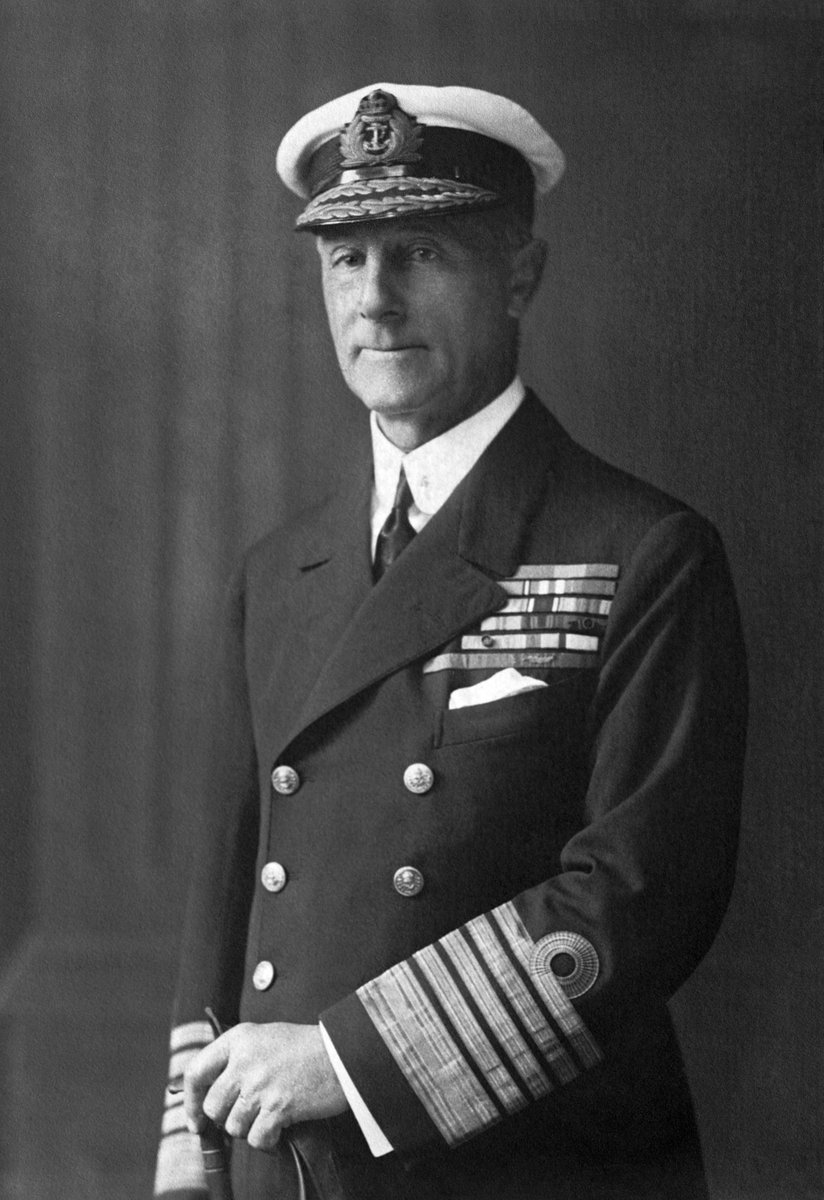This paragraph on the Anglo-German naval arms race, from Andrew Bacevich& #39;s recent article in the American Prospect, has been bugging me since I first read it. https://prospect.org/world/china-conundrum-deterrence-as-dominance/">https://prospect.org/world/chi...
IMO his take, that the UK& #39;s response to Germany& #39;s initiation of a naval buildup pre-WWI did not deter the war that followed, and instead accelerated British decline, first overstates the degree of responsibility the naval race had for the war: it essentially ended in 1912.
But regardless of how important the naval race was among the many causes for the war, what he really misses is what the race ended up buying Great Britain during the war itself: sea control and the ability to...well...win the war!
Let& #39;s look at the counter-factual: if the UK, a nation wholly reliant upon imports by sea, had somehow chosen NOT to respond to a naval buildup by Germany, and yet the war had come anyway due to factors other than a naval rivalry, what then for the UK?
Some observers scoff at the utility of the Britain& #39;s battleship fleet during the war, pointing at the fact that there was only one major engagement, at Jutland. But they miss the fact that Britain& #39;s battle fleet did what it needed to do - NOT lose sea control.
Imagine instead if the Royal Navy had been at mere parity with Germany at the war& #39;s start, & had merely had a bad day (in some ways they did...finding their ships exploding inexplicably) and had lost. What then?
As any navalist knows, the tide of battle at sea can turn quickly.
As any navalist knows, the tide of battle at sea can turn quickly.
It& #39;s not for nothing that Britain& #39;s Admiral Jellicoe has been known as "the man who could lose the war in an afternoon".
The UK had a very near-run thing with supply lines dealing with U-Boats alone; REALLY losing primacy at sea - writ large - would surely have been a deathblow.
The UK had a very near-run thing with supply lines dealing with U-Boats alone; REALLY losing primacy at sea - writ large - would surely have been a deathblow.
So no, perhaps the UK& #39;s choice to engage in a naval arms race didn& #39;t deter war, but what it DID do was help ensure victory at sea - a necessary precondition to bringing to a successful close the first chapter in defeating Prussian militarism, eventually completed in 1945.
To use this historical example, then, as a reason not to engage with China in a similar manner is IMO to learn the wrong lesson...

 Read on Twitter
Read on Twitter




![[There is a reason that one can no longer find Prussia on a map.] [There is a reason that one can no longer find Prussia on a map.]](https://pbs.twimg.com/media/EiZfELwU4AA7ZK1.jpg)



